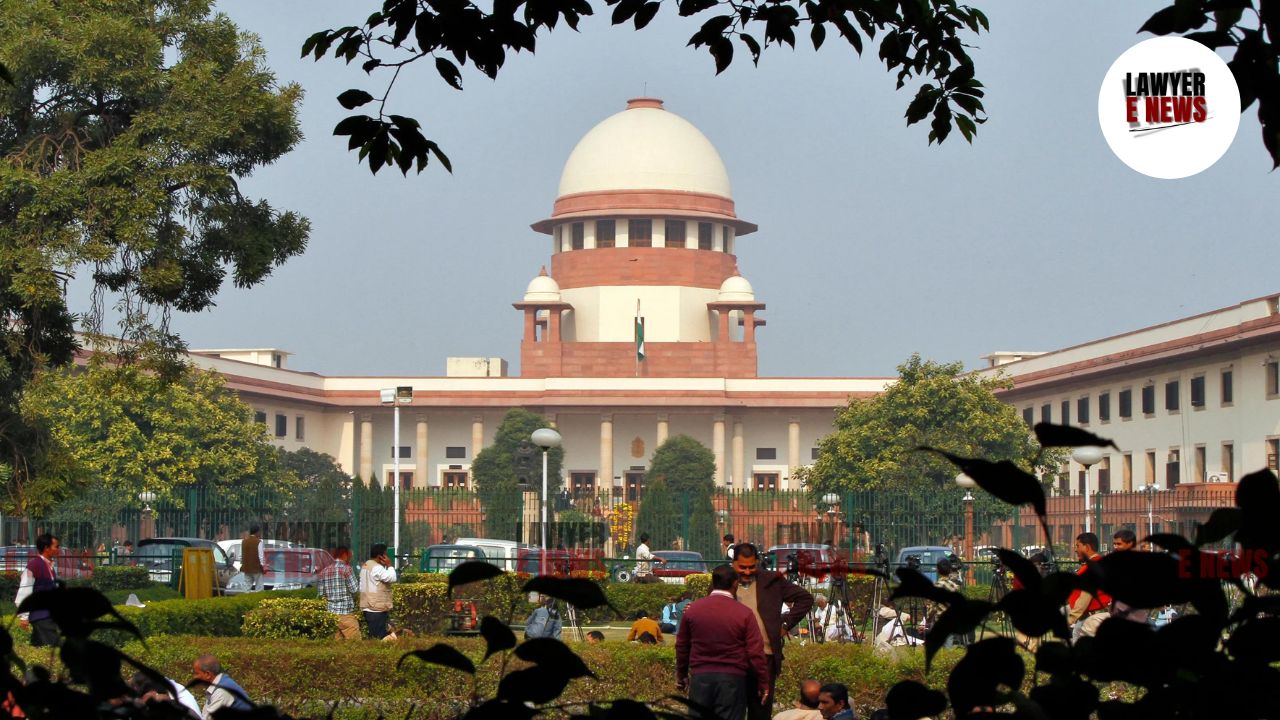-
by Admin
15 February 2026 5:35 AM



Justice Must Not Only Be Done But Also Appear to Be Done: Supreme Court on Politically Charged Investigations directed the transfer of investigations in two FIRs from the West Bengal Police to the Central Bureau of Investigation (CBI) to ensure fairness and credibility in light of allegations of political vendetta and potential bias. The Court held that the politically charged atmosphere in the state, coupled with the involvement of high-profile individuals, necessitated an independent investigation.
The petitioner, Kabir Shankar Bose, a practicing advocate and BJP spokesperson, had approached the Supreme Court under Article 32 of the Constitution, seeking a transfer of investigation into two FIRs lodged against him in 2020. These FIRs, registered with the Serampore Police Station, contained serious allegations under multiple sections of the Indian Penal Code (IPC), including assault, grievous hurt, and outraging modesty.
The petitioner alleged that the FIRs were the result of political vendetta orchestrated by his former father-in-law, respondent no. 7, Kalyan Banerjee, a Trinamool Congress (TMC) MP and a prominent political figure in the ruling party of West Bengal. Bose claimed that the local police, under the influence of Banerjee, had acted in a biased manner. He further highlighted an incident where TMC supporters allegedly attacked his house and CISF security personnel assigned to him.
Political Vendetta: The petitioner claimed that the FIRs were lodged as part of a systematic harassment campaign by respondent no. 7, with whom he had a bitter matrimonial dispute and a political rivalry.
Bias of Local Police: The petitioner alleged that the police were acting as a “private army” of the ruling party in West Bengal, rendering a fair investigation impossible.
CISF's Role: The petitioner’s CISF security personnel were also implicated in the incident, creating a conflict of interest for the local police in investigating their conduct.
Apprehension of Unfair Trial: The petitioner contended that the politically charged atmosphere in the state made it unlikely for the investigation to be impartial.
Whether the investigation of the two FIRs should be transferred to an independent agency, such as the CBI, in light of the allegations of bias and political vendetta.
Whether the local police, under the influence of a powerful political figure, could credibly investigate the matter involving a BJP spokesperson and CISF personnel.
Supreme Court Observations and Findings
The Court reiterated the principle that a fair investigation is a constitutional mandate and an integral part of the right to a fair trial. It observed:
"Justice must not only be done but must also appear to be done. A fair investigation is critical to upholding the credibility of the justice delivery system."
The Court noted the highly polarized political environment in West Bengal, particularly the petitioner’s involvement as a BJP spokesperson and the respondent’s position as a TMC MP. It held that the influence of political power on the investigation could not be ruled out, stating:
"The politically charged atmosphere in the State of West Bengal may not be very conducive to a fair investigation being conducted by the local police."
Given that the CISF personnel, tasked with the petitioner’s protection, were also involved in the incident, the Court deemed it inappropriate for the local police to investigate their conduct. It stated:
"The case involves the investigation of the role of CISF personnel, which cannot be left in the hands of the local police for reasons of conflicting interests."
The Court cited landmark judgments, including State of West Bengal v. Committee for Protection of Democratic Rights (2010) and K.V. Rajendran v. CBCID (2013), which established that constitutional courts can transfer investigations to an independent agency in exceptional circumstances involving political or institutional bias.
The Court issued the following key orders to ensure impartiality in the investigation:
Transfer to CBI: The investigation of both FIRs (No. 400/2020 and No. 401/2020) was transferred to the CBI, along with all relevant records and materials.
Fair and Expeditious Investigation: The CBI was directed to complete the investigation promptly to ensure that, if necessary, the trial could proceed without delay.
Protection of Justice System’s Credibility: The Court emphasized that transferring the investigation was necessary to uphold public confidence in the justice system.
Legal Precedents Cited
State of West Bengal v. Committee for Protection of Democratic Rights (2010): Affirmed the power of constitutional courts to transfer investigations in exceptional cases.
Rubabbuddin Sheikh v. State of Gujarat (2010): Held that courts can transfer investigations to CBI to ensure fairness in cases involving high-profile individuals.
K.V. Rajendran v. CBCID (2013): Recognized that constitutional courts should not hesitate to transfer investigations where state agencies may lack impartiality.
R.S. Sodhi v. State of U.P. (1994): Highlighted the need for investigations to appear credible in the eyes of the public.
The Supreme Court’s decision underscores the importance of ensuring impartiality and fairness in politically sensitive investigations. By transferring the probe to the CBI, the Court sought to maintain public trust in the justice system and prevent misuse of state machinery for political vendetta.
Date of Decision: December 4, 2024
